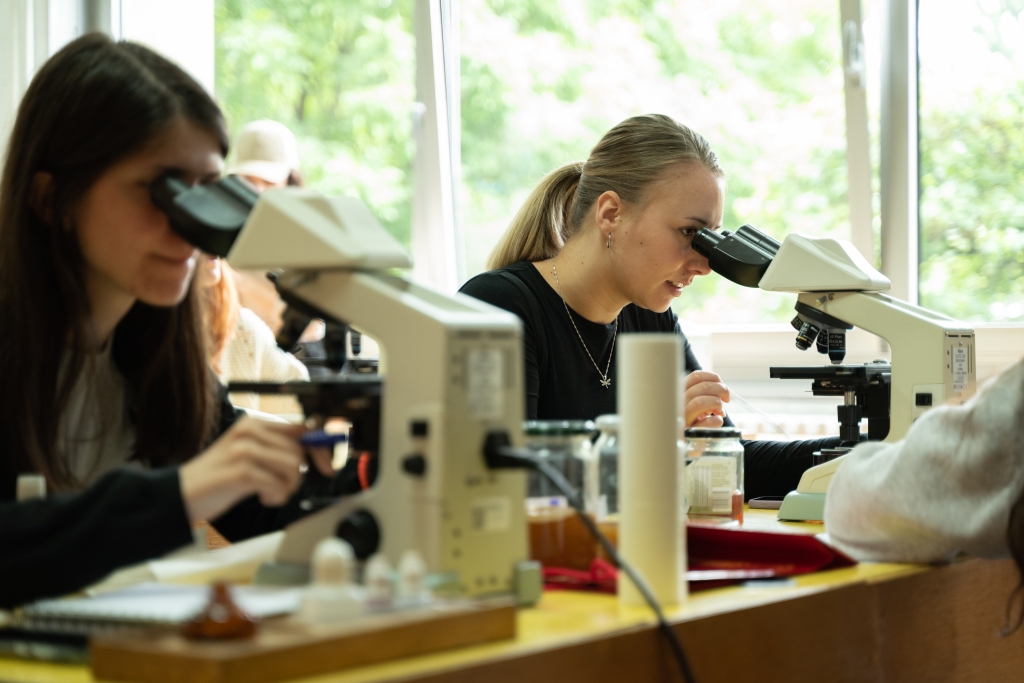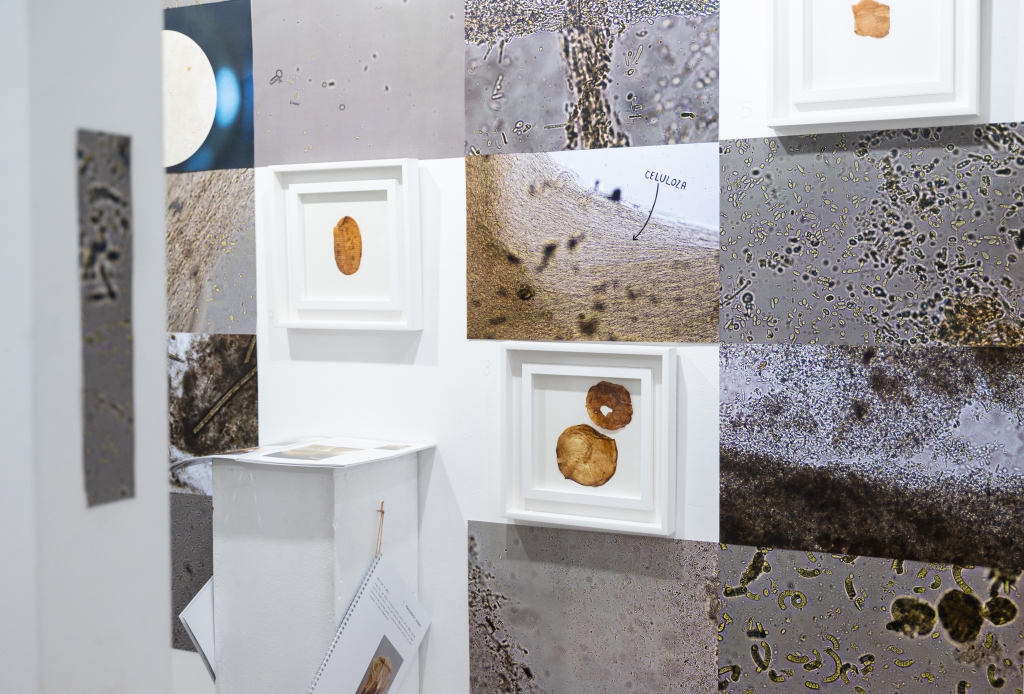BIOCODE
The “BIOCODE” project stems from the successfully implemented BIOFACTORY project, which was supported by the European Capital of Culture – Novi Sad 2022. Based on the results of the project, it was concluded that it is necessary to further work on the education of young people in order to familiarize them more closely with the aspects and possibilities of applying materials of biological origin in art and in science. This is how the idea for the BIOCODE project was born, which would be based on art-scientific and research-educational workshops in cooperation with the Faculty of Science (PMF) within the Department of Biology and Ecology and Mycological laboratory “ProFungi”, the Science Club at the Cultural Center of “Svilara” and the MMC Led Art – gallery “Šok ZaDruga” in Novi Sad.
The initial idea of BIOCODE is to acquire new and deepen existing theoretical knowledge and practical skills of project participants and users through lectures, workshops, mentorships, open conversations, exhibitions and creative research, implementing important topics based on bioethical practices in the sphere of contemporary artistic creation and science. The context of the BIOCODE project is based on the goal of highlighting, through informal education, the advantage of using biomaterials as safe and sustainable options and its potential to replace harmful materials that damage our environment.
The artistic-scientific research of the material was carried out through workshops that were available to students of the Department of Biology and Ecology, Faculty of Science, and the young participants of the project had the opportunity to learn from a theoretical aspect with new terms and directions of contemporary practices in the art studio, while the practical aspect of the workshops in a hybrid form included the preparation of a beverage (kombucha), growing and testing the production of bio-materials (SCOBY – Symbiotic Cultures of Bacteria and Yeast) in different conditions, keeping a visual diary about the creative-research process and in-depth experimentation with biomaterials under the mentorship of Assoc. Milana Rakić microbiologist/mycologist and visual artist Adrienn Újházi. The results of the workshop with prototypes and diaries were presented to the public at an exhibition in the “Šok ZaDruga” gallery, where visitors had the opportunity to immerse themselves in the biological world of newly created and sustainable materials, as well as to interact through microscopy with living organisms such as bacteria and yeast.
After the workshops and before the opening of the exhibition, a series of lectures was organized for the project participants and the general public in cooperation with the Science Club at the “Svilara” Cultural Station, where experts from the sphere of science and art presented themselves with topics summarized through various bioethical issues in theory and practice. The rich and educational content of the lecture gave the visitors the opportunity to acquire basic knowledge about the disciplines of science and art, which reach sustainable practices, the importance of biomaterial research and its application in the modern world and in the future.
During the lecture, the following individuals presented their work: prof. Maja Karaman with many years of work in the field of microbiological research and scientific experience in working with biomaterials; prof. Milan Matavulj with a rich career as a scientist and artist related to sustainable art; Sunčica Pasuljević-Kandić has devoted many years of practice to researching numerous challenges in culture, among other, experimental mapping and artistic research around artificial intelligence as well as technological-ecological approaches to the future of society; Darija Dragojlović in her work examines the individual and collective effect of humanity on the planetary ecosystem, as a result of which its natural conditions and mechanisms are modified, and its further sustainability becomes questionable.
Project supported by: City Administration for Culture – Novi Sad.







SCOBY – eng. Symbiotic Culture Of Bacteria and Yeasts
The term SCOBY is most often used for a cellulose-based biomaterial that is created as a result of the activity of microorganisms living in a common, mutually beneficial community in which their metabolic processes are closely interconnected. In a liquid medium known as KOMBUCHA which consists of tea sweetened with sugar or honey and an introduced starter (pre-grown symbiotic microbial culture), yeasts and bacteria grow and multiply using the available sources of energy and nutrients. Yeasts (species of the genera Zygosaccharomyces, Saccharomyces, Candida, Torulaspora, etc.) break down sugars into alcohol and carbon dioxide, while the bacteria present (species of the genera Acetobacter, Gluconobacter, Gluconacetobacter, Komagataeibacter, Lactobacillus, etc.) further transform alcohol and remaining sugars into organic acids, in a process known as acetic and lactic acid fermentation. One of the additional products of the activity of this microbial community is a biomaterial built from the finest cellulose fibers, which some of the present bacteria form on the surface of the liquid medium as a specific “shield” – “biofilm” whose role is to protect the microbial community from unfavorable environmental conditions.
This interesting community of microorganisms has existed in nature for thousands of years, usually decomposing fruits, and it first became interesting to people because of the process of producing the nutritious and medicinal KOMBUCHA drink. Recently, the SCOBY itself has attracted additional interest as a biodegradable material with exceptional characteristics that finds application in numerous fields (in art, textile industry, biomedicine, food industry, environmental protection, etc.)







































